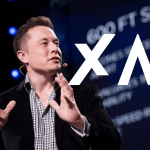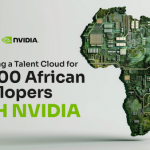Elon Musk’s artificial intelligence company, xAI, has raised $6 billion in its latest funding round, bringing its total capital to $12 billion this year. The funding, disclosed in a U.S. Securities and Exchange Commission filing, involved 97 investors, including industry giants such as Andreessen Horowitz, BlackRock, Fidelity, Nvidia, AMD, and Sequoia Capital. Each investor contributed a minimum of $77,593.
Reports suggest that xAI is now targeting a $50 billion valuation, doubling its worth within six months. This funding round was exclusive to previous investors, some of whom had supported Musk’s Twitter acquisition and were offered up to 25% of xAI shares.
Founded in 2022, xAI has rapidly advanced its generative AI capabilities, primarily through its flagship model, Grok. The model is integrated into X (formerly Twitter), powering interactive chatbots available to X Premium subscribers and some free users. Grok is designed to answer unconventional questions with “edgy” responses, positioning itself as an alternative to AI models Musk criticizes as overly “politically correct.”
In addition to generating text, Grok’s features now include image generation and analysis via its integration with Flux, as well as summarizing news and trending events. Future updates may expand Grok’s functionality to include enhanced search tools, post analytics, and user profile insights on X.
To extend its reach, xAI launched an API in October, enabling businesses to embed Grok into third-party applications. The company also introduced a standalone iOS app to a test audience, signaling its ambition to compete with market leaders like OpenAI and Anthropic.
Musk has positioned xAI as a disruptor in the competitive AI landscape, leveraging data from X as a unique asset. This strategic advantage is reflected in X’s updated privacy policy, which allows third parties, including xAI, to train AI models using user posts.
However, xAI’s journey hasn’t been without challenges. Musk’s legal team has accused OpenAI and Microsoft of anti-competitive practices, alleging they have discouraged investors from supporting xAI and unfairly leveraged their partnership. Musk, a co-founder of OpenAI, has publicly criticized its shift away from its nonprofit origins, suggesting this move contradicts its original mission.
With the new funding, xAI aims to accelerate the development and integration of its technologies, enhancing its presence in the generative AI market. The company is exploring broader applications for Grok, such as advanced analytics and enterprise tools, to capture a significant share of the AI-driven business solutions market.
As Musk continues to push the boundaries of AI innovation, xAI’s growth reflects his broader vision of integrating AI into everyday life while challenging existing norms and competitors. The company’s advancements are poised to play a significant role in shaping the future of AI and its applications across industries.









